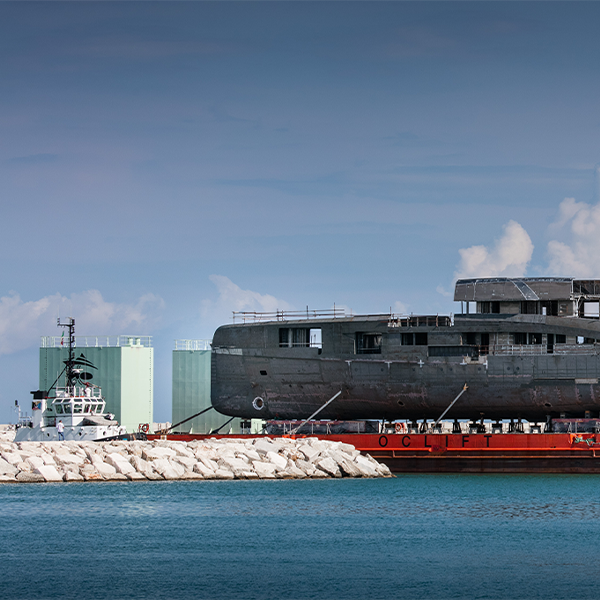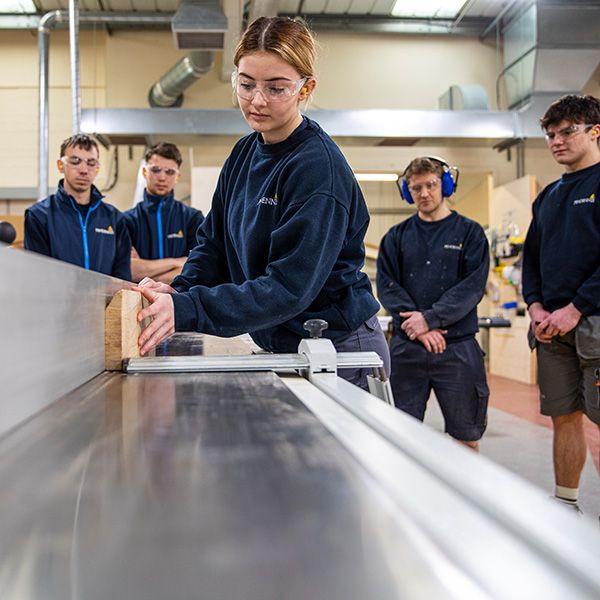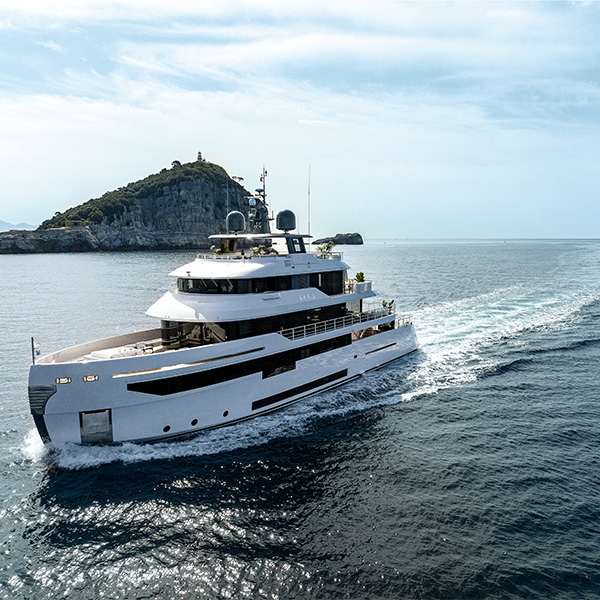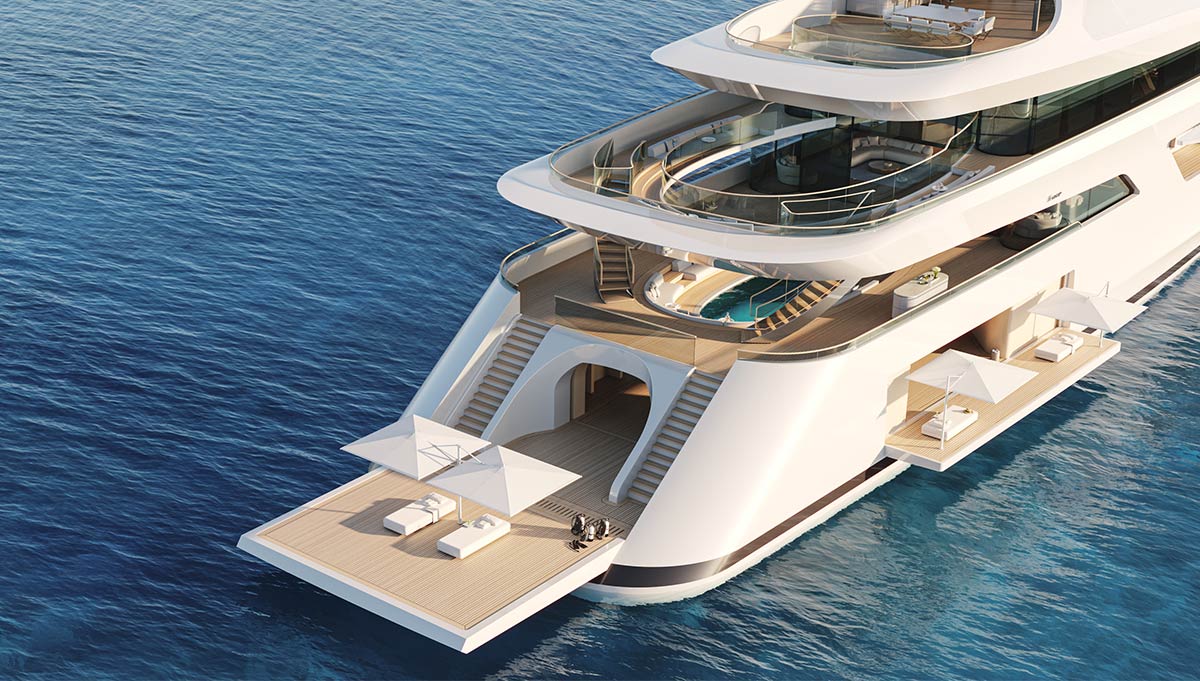
Pure

Pure
Superyachting’s power to change
There are moves globally to hit stringent new decarbonisation goals, and the superyacht sector is no different – but pioneering builders and owners are showing that concrete action can be taken today.
The thought of cooking your French fries in diesel hardly sounds appealing, yet – in a roundabout way – that may well represent the next step in the decarbonisation of the superyacht fleet. The use of biofuels, in this case renewable diesel derived from vegetable oils and even waste cooking oil, is something that has long been touted by visionary superyacht builders looking to progress our industry and – quite rightly – to appeal to a new generation of owner for whom environmental impact is front and centre of their considerations.
The topic of renewable fuels and alternative power solutions has become one of the hottest superyacht conversations in recent months, and already we are seeing a shift. German superyacht builder Lürssen has confirmed it has a fuel cell superyacht – using methanol – under construction, as has Feadship. Moreover, Italian builder Sanlorenzo recently announced that it too has started construction on a fuel cell motor yacht of its own, notable for the facts that it is just 50 metres in length and that it is due for delivery in 2024. And of course there is French company Hynova, headed by Captain Chloé Zaied, which has developed a production hydrogen boat that is currently under construction.
But while these projects give a tantalising glimpse of an industry of the future, there is a solution that is available today – and it is perhaps particularly pertinent now given the sudden disruption to the global oil market. It is something that some forward-thinking superyacht builders have been touting for a while. Feadship, for example, has frequently referred to renewable biodiesel when discussing its annual Future Concept projects, and its 2021 project – unveiled at the Monaco Yacht Show last September – made the point as clear as day.


Named Pure, a key focus of the concept is an adaptable drivetrain that takes into account the current and emerging fuel technologies that will power superyachts into the future. And the first stage? Biofuels. Indeed, in an episode of Feadship’s UnIQ series broadcast in the summer of 2021, the topic once again was put front and centre. “We often talk about these exotic fuels that are coming, but there is also HVO (hydrotreated vegetable oil),” offered Joost Schapendonk, Director Marketing & Technology at Pon Power, the distributor of Caterpillar engines. “[It’s] a second-generation biofuel produced using hydrogen – and this results in a fuel that is lacking the drawbacks of the first generation of biofuels.”
Essentially, this new generation of HVO biofuels – which uses anything from farmed vegetable oils to used cooking oil as its base – is opening up a new world of possibilities, and it’s an option that anyone can take on board right now. “It’s a sustainable drop-in replacement for fossil diesel,” says Bart Hellings, COO/CTO of Dutch company GoodFuels. “We think this fuel could play a very important role in the yacht and superyacht segment, and the fuel is readily available at the moment. And if you look at the biofuel, the carbon that comes out is by definition biogenic and does not add any additional carbon to the atmosphere. That’s the whole concept of renewable biofuel.”
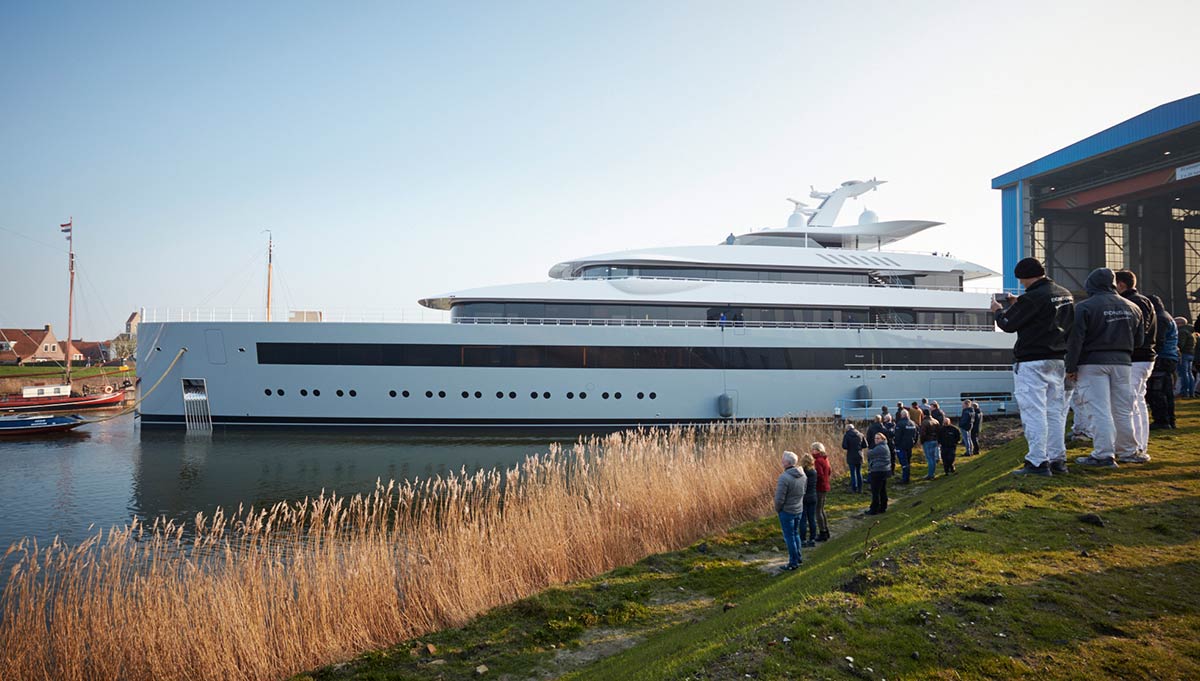
Moonrise

Moonrise
In the past there have been certain barriers that have slowed the uptake of HVO biofuels – they are more expensive than conventional diesel, and people are unfamiliar with them, plus of course there’s the need for class societies, insurers and the like to get on board. But that is all changing. “We’ve been very busy the past couple of years managing that ecosystem,” enthuses Hellings. “We have the support of all the major engine manufacturers both for bigger and for smaller vessels for using our fuels.
“The biofuel supplied to the yachting industry is completely interchangeable with conventional diesel so it can be mixed in any percentage – this interchangeability of fuels is very important,” Hellings adds, referring to the fact that yachts don’t run defined routes and therefore have to take availability of fuel in different locations around the world into account. “But there’s no excuse anymore,” he concludes. “A yacht can call us today and we are alongside to bunker next week, and the yacht is immediately decarbonising. At least with the current infrastructure and technology out there, I think renewable fuels – as long as they are actually sustainable – are the perfect solution for the current fleet.”
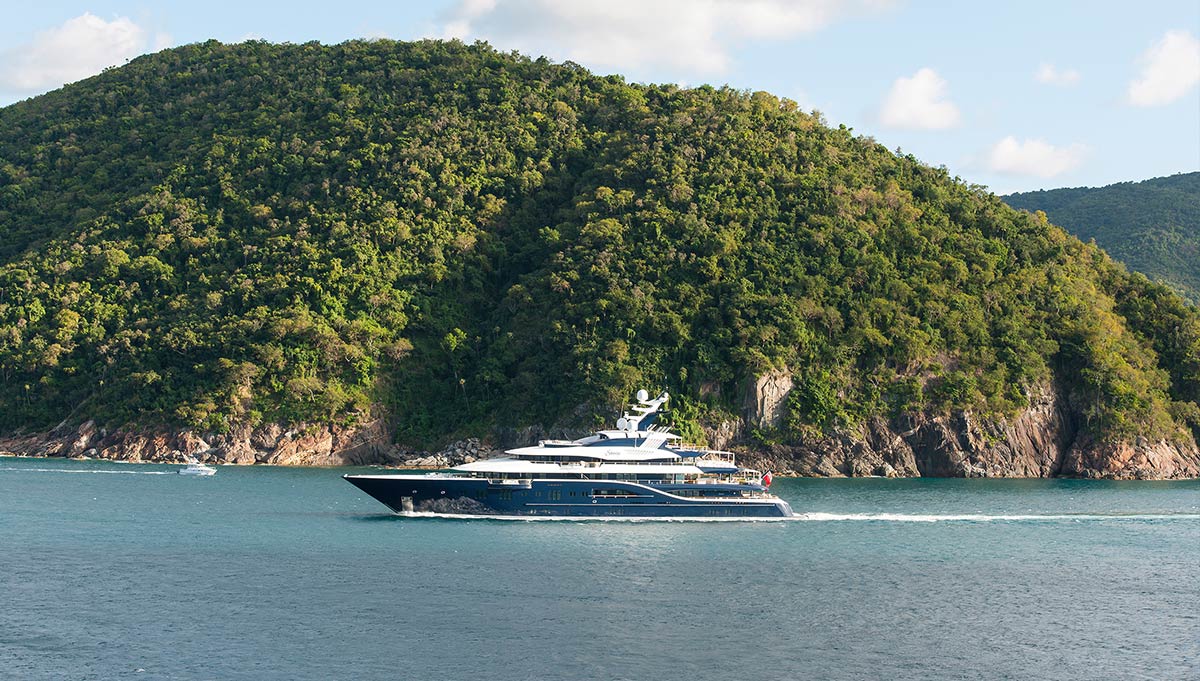
Solandge KLAUS JORDAN

Solandge KLAUS JORDAN
Renewable fuels provide an immediate answer to a growing question of how we can become fossil-free. Driven by forward-thinking superyacht builders, pioneering owners, and an engine manufacturing industry keen to ensure its own survival by transitioning to new fuel technologies, biofuels are both an escape route and a pathway to a cleaner future, where superyacht owners will be at the vanguard of the push toward decarbonisation. Who said fried food was unhealthy?

